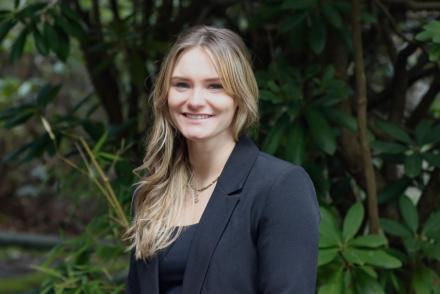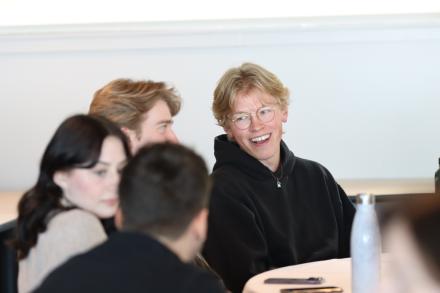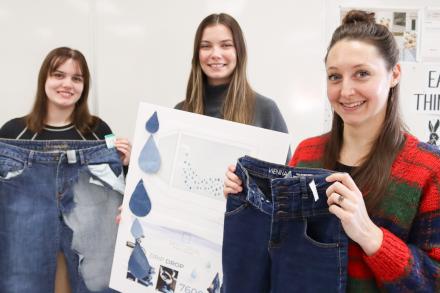Four tips to help you now and year-round
Every June, people around the world celebrate Pride month. The VIU Positive Space Alliance encourages our community to renew their commitment to creating spaces that are safe and inclusive for 2SLGBTQ+ members of our communities this year. Here are some ideas that can help you demonstrate that you’re an ally:
Include your pronouns when introducing yourself
Offering your pronouns when introducing yourself to a group (“Hi, my name is Chris and my pronouns are he/him”) signifies to other people present that you are open to conversations about pronouns that people use to identify themselves. Offering your own pronouns is the preferred method instead of asking someone to share theirs. Not all people are in situations where they can freely share their pronouns.
Use your pronouns in written materials
Include your pronouns in your email signature, business card, office door sign, syllabus and other materials you may use to introduce yourself. Including your pronouns in reference materials about yourself provides people an opportunity to do the same. This helps to normalize the inclusion of pronouns in these situations and helps create spaces where people can share them. As above, not everyone is in a situation where they can freely share their pronouns.
Use gender-neutral language
Using gender-neutral or non-gendered language when addressing groups of people, such as saying “Hi folks” instead of “Hi guys,” helps create a space for all people regardless of their gender identity or expression. Gendered language can make some people feel excluded from spaces, like they are not represented, and unsafe if they do not identify with the gender binary (male/female).
Instead of solely using gendered language, such as girlfriend/boyfriend and wife/husband, occasionally use gender-neutral options, such as partner and spouse when it makes sense to do so in conversation, handouts, forms and other documents.
People use gendered language in many aspects of their lives based on how they understand their relationships with different people. Incorporating non-gendered language when referring to these relationships helps create spaces where 2SLGBTQ+ can talk about their relationships similarly without people questioning why they are doing so. Normalizing the use of words such as partner, spouse, parent and other similar words allows for people to talk about their relationships without bringing attention to the fact they are not referring to the person’s gender. As an example, a lesbian may feel uncomfortable referring to her same-gender partner depending on the situation she is in; however, if people in opposite-gender relationships regularly use terms like “partner,” and “spouse,” she can use the same language without people questioning her use of those words.
Take Positive Space training
Host a Positive Space training session about the 2SLGBTQ+ community into your area, department, classroom or committee to learn more about issues and challenges faced by the 2SLGBTQ+ community by emailing your request to positivespace@viu.ca. The Positive Space training runs between one hour to an hour-and-a-half depending on the content covered. Upon completion of the training, employees are invited to take a Positive Space Alliance sticker which they can put up in their workspace to indicate they are a person who is interested in creating a welcoming and inclusive education and work environment for members of the 2SLGBTQ+ community. This training is a great PD opportunity!
If you would like to have a one-on-one conversation with the Positive Space Alliance about ways you can demonstrate your commitment of VIU being a positive, safe and welcoming place for 2SLGBTQ+, please contact us at positivespace@viu.ca.
Chris Yeast is Chair of VIU's Positive Space Alliance.
Related Posts
Got an article idea for the blog? Email students@viu.ca.



